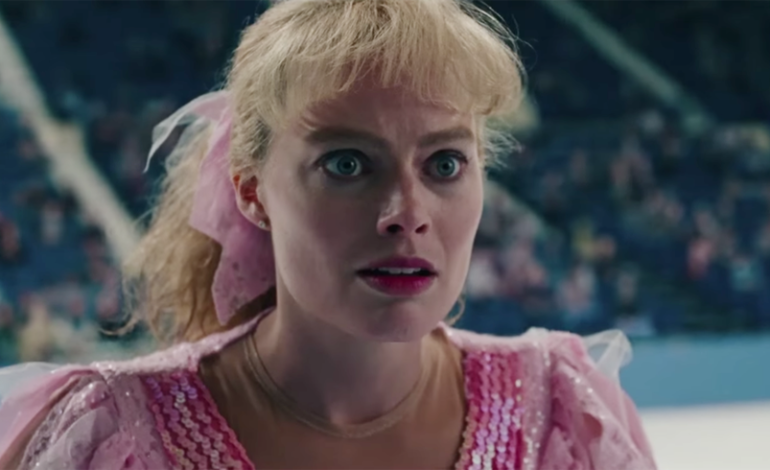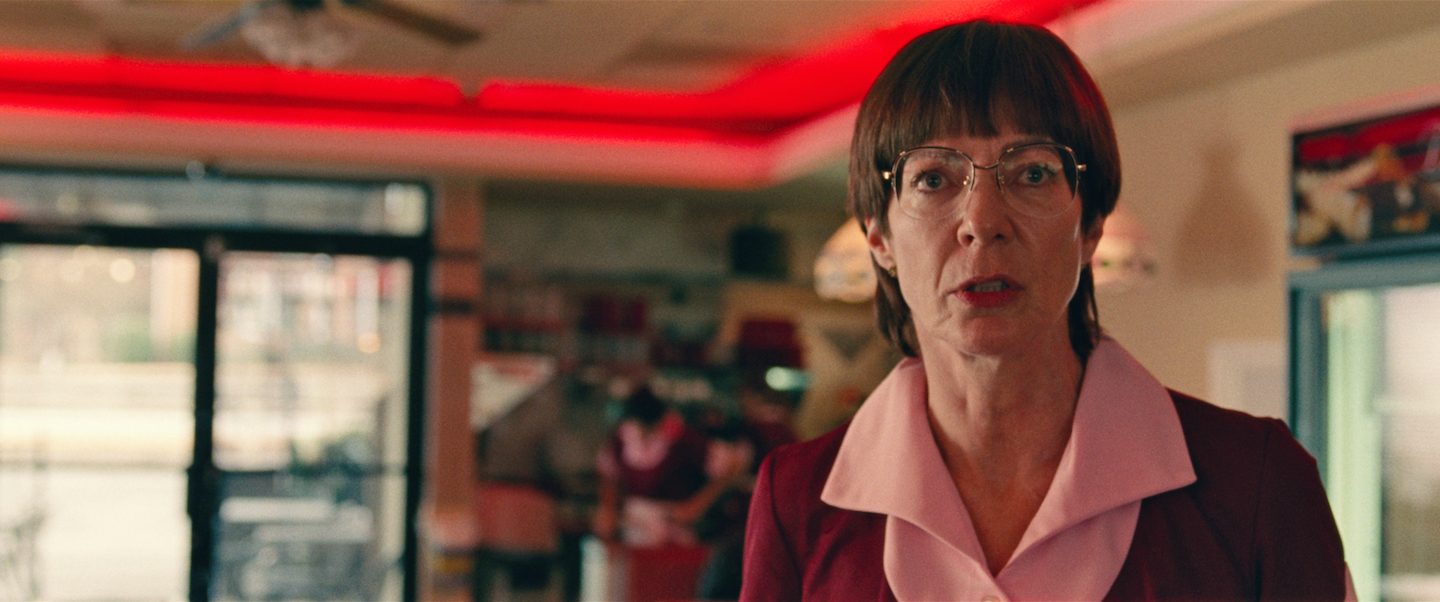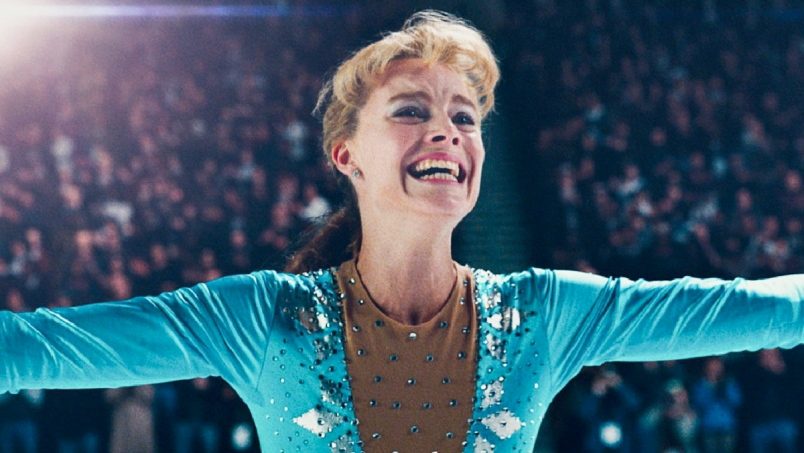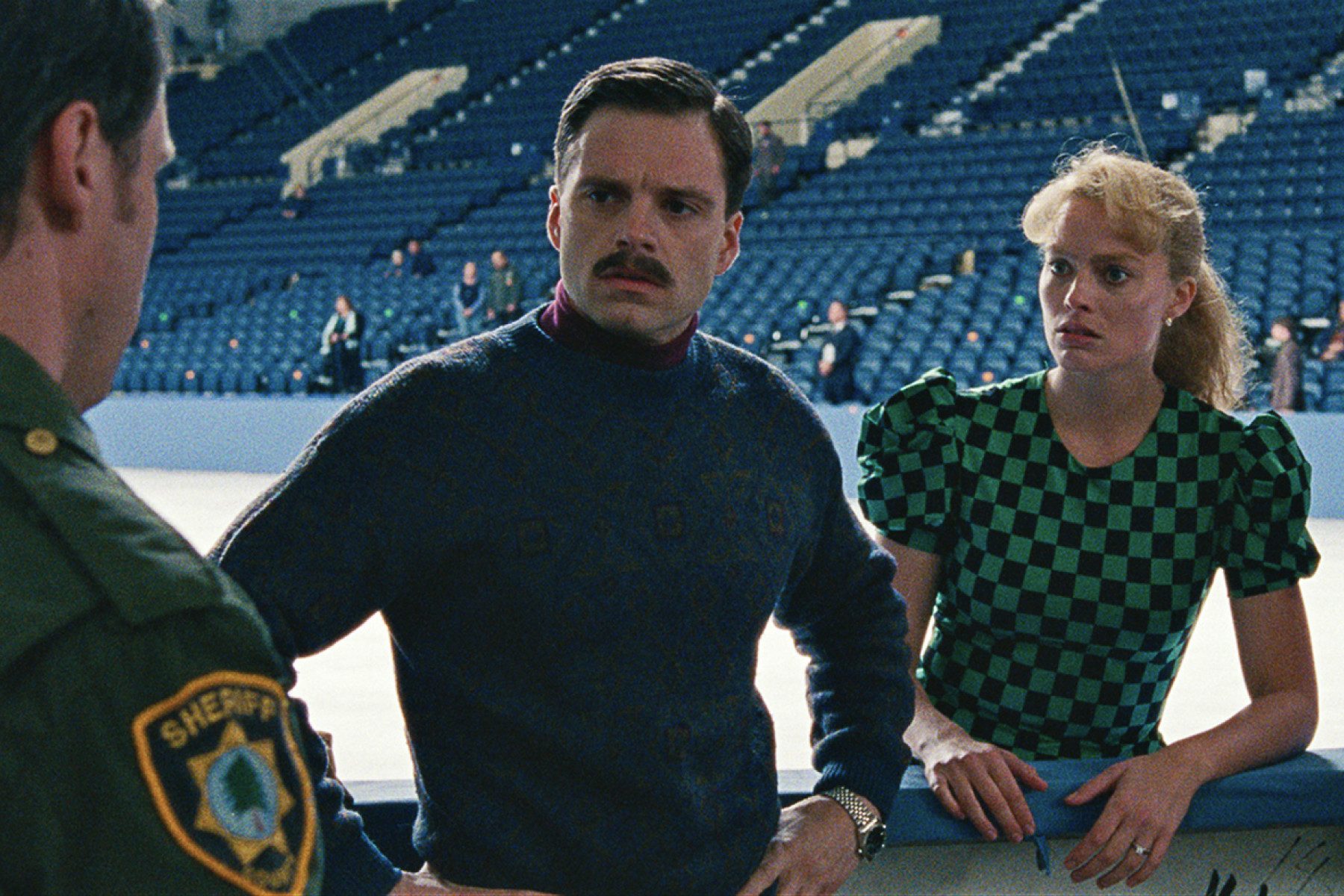

Few films are powerful enough to make the audience sit back and think about how they had a part in the narrative’s outcome. Whether we’re little girls dreaming of being skaters or merely onlookers to the news cycle, we were either Team Nancy or Team Tonya. Let’s be honest: we were most likely Team Nancy. It was easy- she was pretty, graceful, talented, and we were fed the idea she was a princess on ice. Tonya was just as gifted as Nancy, maybe more, being the first US woman in 1991 to attempt and land a triple axel. Yet the idea that Nancy was perfect and Tonya was trash is why we needed the film I, Tonya.
I, Tonya, the 2018 biographical film about Tonya Harding’s career and ultimate public fall from professional figure skating, offers a darkly comedic take on the upbringing that shaped her into the woman we all saw on television. Tonya (Margot Robbie) started skating and winning competitions at four years old but, to put it nicely, her mother, LaVona (Allison Janney), was callus and stoic. She would verbally, emotionally, and physically abuse Tonya with the excuse that she skated better when she was enraged. LaVona was convinced that everything she did to Tonya and for Tonya was good parenting and that it was what was best for her daughter.
LaVona was always in emotional control of any situation she was in, especially with Tonya. She never showed any pride or love for her daughter, calling Tonya names if she lost a competition or engaged in behavior not approved. She was with Tonya on her first date with Jeff (Sebastian Stan) asking inappropriate questions. She was calling Tonya dumb for thinking she deserved to be hit by Jeff. LaVona held power by asking for a kiss before Tonya leaves the house. She coldly paid a patron to heckle her daughter before a competition. Despite not approving of Jeff, her abuse of Tonya pushed her to marry him, yet that didn’t stop LaVona from throwing a knife into her daughter’s arm and even putting her down at the wedding.


On top of all that, LaVona repeatedly chooses to take all the credit for Tonya’s talent and believed Tonya should be thanking her, not blaming her. She paid for her skating and made her a champion, unaware and uncaring of the wounds that don’t show on her skin. At the most vulnerable time for Tonya at the height of the scandal, LaVona shows up with the façade of being there to support her daughter. In a cruel act of betrayal and manipulation, she tells Tonya she loves her and is proud of her before asking about the attack, causing Tonya to realize she’s wearing a wire. LaVona had no intention of supporting Tonya, only to record what she had to say.
In the film, Tonya sarcastically notes how Nancy is hit once and the world freaks, yet for her, it was an all the time occurrence. Her father left when she was a pre-teen and all she knew was a world of abuse from her mother. When Jeff started to hit her, she didn’t think much of it because that’s what she always knew, and thus assumed it must be her fault. She was brass and would hit back, but always rationalized the abuse saying her mom hits her, and she loves her. She saw hitting as a sign of what people who loved you do to each other. The abuse was ordinary, normal, and accepted by her romantic and mother-daughter relationships, with I, Tonya repeatedly breaking the fourth wall to soften disturbing images of Tonya’s head being smashed in a mirror or being punched in the car. Tonya just wanted to be loved, but Jeff needed to have the last word in the matter.
After nationals when she lands the triple axel, Tonya’s relationship with Jeff shifts, and we see his jealousy of her fame. His abusive behavior increases, which forces Tonya to get him arrested and have restraining orders filed. Desperate, he shows up with a gun and threatens to break her legs (i.e. her livelihood), kill her, and then himself. According to The Domestic Violence Hotline, it takes on average seven times to leave an abusive partner before they leave for good. With those statistics in mind, it is no surprise that Tonya goes back to Jeff.


At one point, Jeff gets pulled over with guns in his car and alcohol over the seat. The cops see the blood over Tonya’s face, but let Jeff go with her after he threatens to kill her if she says anything. Masculinity and the idea that the guns are for protection failed Tonya in a time that she needed authorities the most. At that moment, Tonya couldn’t trust anyone, including authorities, further emphasizing that she deserves the abuse. Yet the final slap to her face is when she knew Jeff orchestrated the attack on Nancy.
Tonya only knew violence as a way of communication, which is part of why we don’t see her as ladylike or a victim. Her tough exterior isn’t what we know a victim looks like. Her most important relationships used her as their punching bag. She would go onto the ice and confront the judges or even follow a judge to his car to ask about her scores. She always refused to play by their rules or their sexist idea of what a woman should look like. Her rebellion was about classism and sexism and how talent is the only measuring cup needed in an athletic arena. Yet this violence drove away from Tonya’s first coach Diane Rawlinson (Julianne Nicholson), who returns in the final act to help train Tonya for her final Olympic appearance.
Jeff’s friend, and mastermind of the attack, Shawn (Paul Walter Hauser) was a delusional, comedically idiotic, and strange person. His toxic masculinity fed off of Jeff’s. Jeff lamented that he wanted to do something to Nancy to show his way of loving Tonya, yet that original plan of writing letters turned to military assault in Shawn’s twisted mind. He saw himself as a terrorism expert and believed his fantasy of working for international agencies about security protection.


In the end, Jeff got a two-year sentence and only served eight months of that sentence, while Tonya received a life sentence ban from skating. Skating was her life- her identity- and she was stripped of that identity by Jeff’s overreaching. His ultimate goal was to take Tonya away from skating and while his punches couldn’t accomplish this, his impulsivity did.
During the final monologue, Tonya addresses the fourth wall about public opinion being weaponized against her. Next time we want to taunt or make fun of someone we don’t know, remember Tonya’s words: “I was loved for a minute. Then I was hated. Then I was a punchline. It was like being abused all over again. This time it was you, all of you.”
